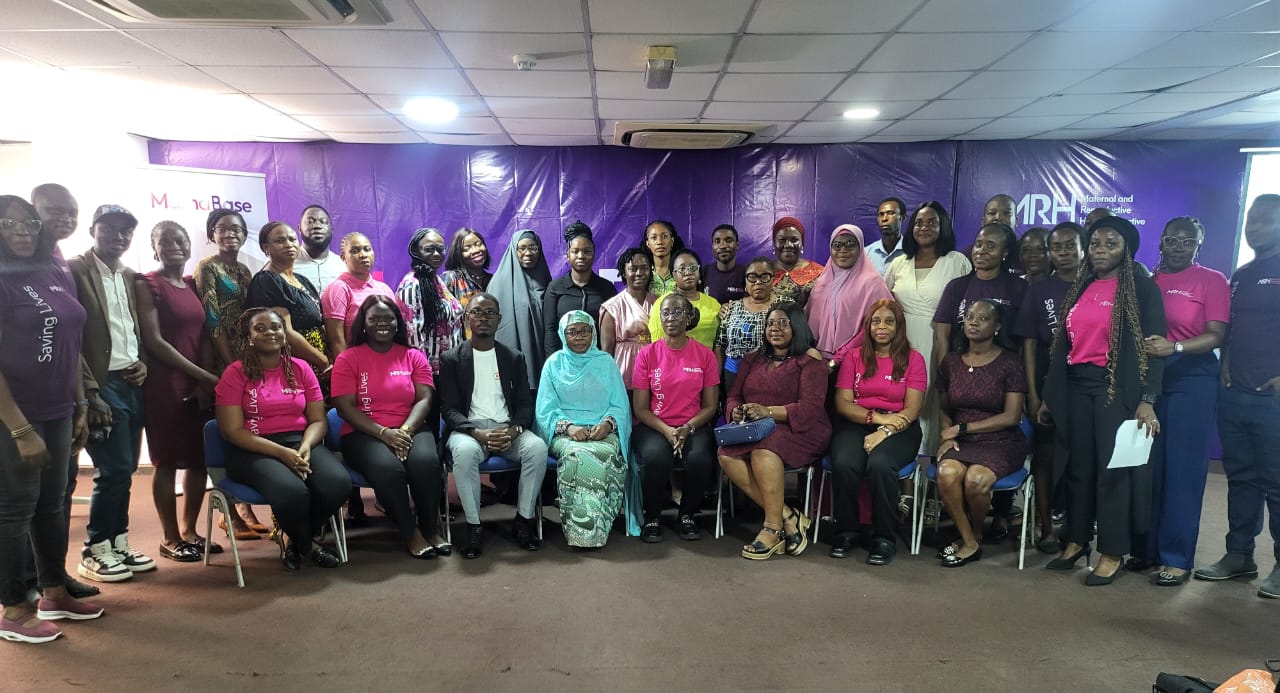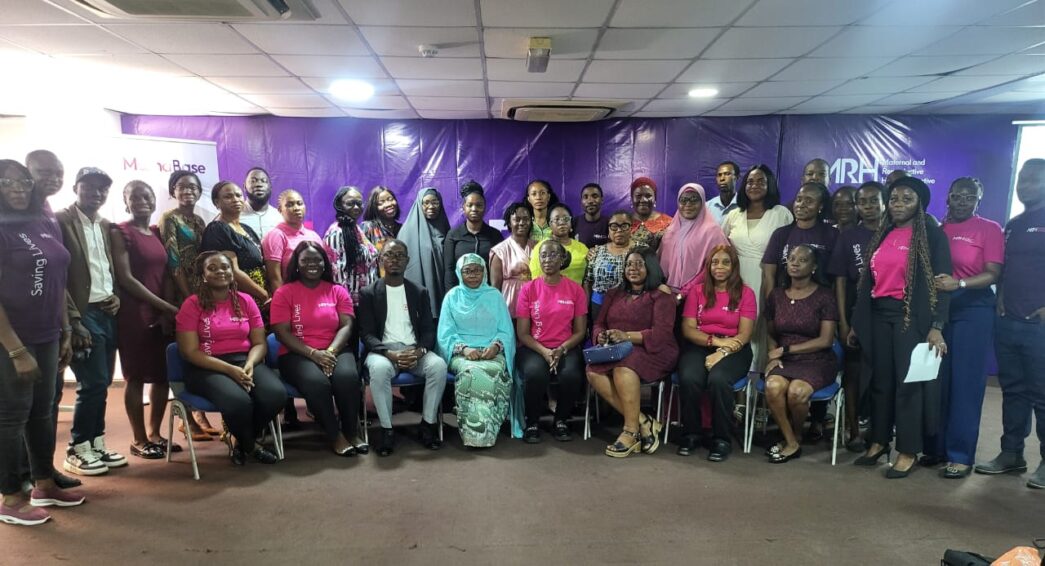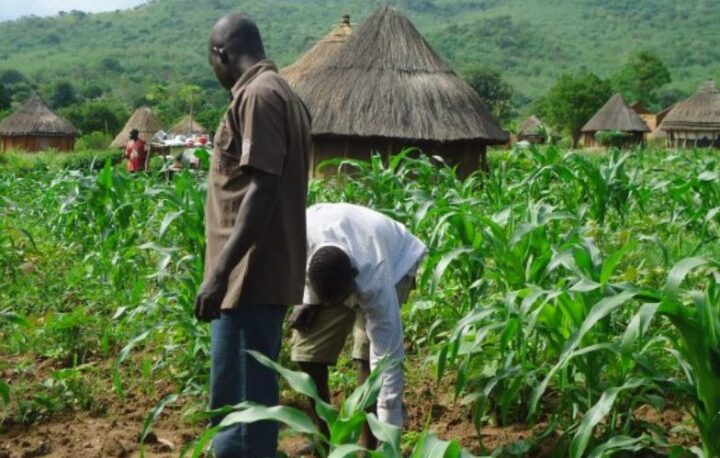Stakeholders at the press conference
The Maternal and Reproductive Health Collective (MRH), a non-governmental organisation (NGO), says it is imperative that women have access to quality healthcare to reduce maternal morbidity.
Olajumoke Oke, MRH acting executive-director, spoke during the unveiling of the result of its MamaBase programme at a press conference held at the Lagos Chamber of Commerce and Industry, Ikeja, on Tuesday.
MamaBase is an initiative aimed at improving maternal health outcomes across 12 LGAs in Lagos.
Oke said the project, implemented between October 2023 and September 2024, has registered 7,883 pregnant women, facilitated 7,467 safe deliveries, and reduced maternal mortality rates among participants.
Advertisement
“The MamaBase program reported a maternal mortality ratio (MMR) of 123 per 100,000 live births among its beneficiaries — a stark contrast to Nigeria’s national average of 1,047 per 100,000,” she said.
“Key achievements include 7,883 women enrolled in the program, with 80 percent accessing skilled maternal care at health facilities.
“50 percent reduction in third-trimester losses among participants, emergency care support provided for 144 high-risk women, including coverage for life-saving cesarean sections; and 99.9 percent child survival rate for deliveries under the program.”
Advertisement
She said the LGAs covered were Epe, Etiosa, Ibeju-Lekki, Alimosho, Ikorodu, Mushin, Ajeromi, Ojo, Amuwo, Kosofe, Agege, and Apapa.
“By registering vulnerable pregnant women, linking them to primary health facilities, and providing free scans, tests, and emergency care, we have shown that systemic change is possible even in resource-limited settings,” she added.
“No woman should die giving life. With collaborative effort, we can make this a reality.”
Oke noted that the success of the MamaBase programme has spurred plans to expand the program to other high-risk states.
Advertisement
She added that the initiative underscores the potential of targeted interventions to reverse Nigeria’s maternal health crisis.
Giving an impact assessment of the initiative in Lagos, Olufunmilola Owosho, the chief operating officer, said MRH began full implementation of the MamaBase programme across the 12 LGAs in 2023.
She said the plan is to link 5,000 women to formal healthcare within 12 months and ensure that at least 80 percent of them have access to maternal services at health facilities.
Highlighting the challenges encountered during the project implementation, Owosho said many women lack health insurance and a birth plan.
Advertisement
She also said a lack of emergency transport facilities for women in labour and some social-cultural factors are impediments.
She called for partnership and collaboration with various community resources to expand the project’s scope.
Advertisement
Also speaking, Oluwatosin Laleye, MRH senior programme manager (research), said the high maternal death rate is caused by factors such as bleeding, hypertension, disorders, poverty, inequality, lack of education, and other factors.
“Pregnant women shun primary health care because of the attitude of health workers. They also refuse to go to the health centre because of medical costs,” Laleye said.
Advertisement
Laleye said MRHC intervened to tackle these challenges through a detailed programme encompassing education and training of birth attendants, health education for pregnant women, home visits by community health workers, telehealth messages, research, and advocacy.
Abimbola Mabogunje, a permanent secretary from the Lagos State Ministry of Health, lauded the project, saying that it has boosted the maternal and reproductive health of targeted beneficiaries.
Advertisement












